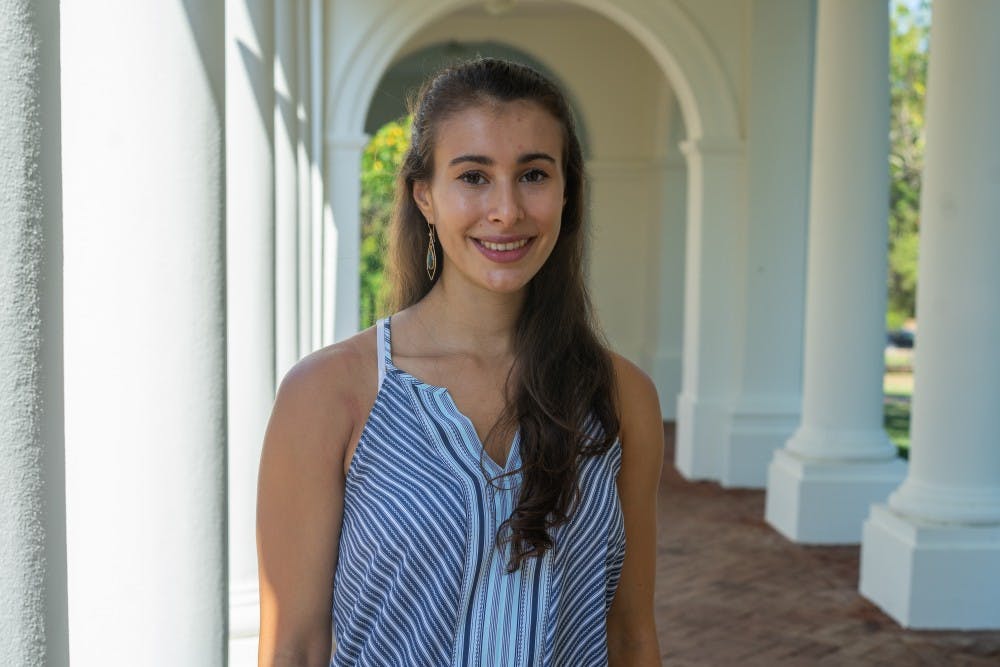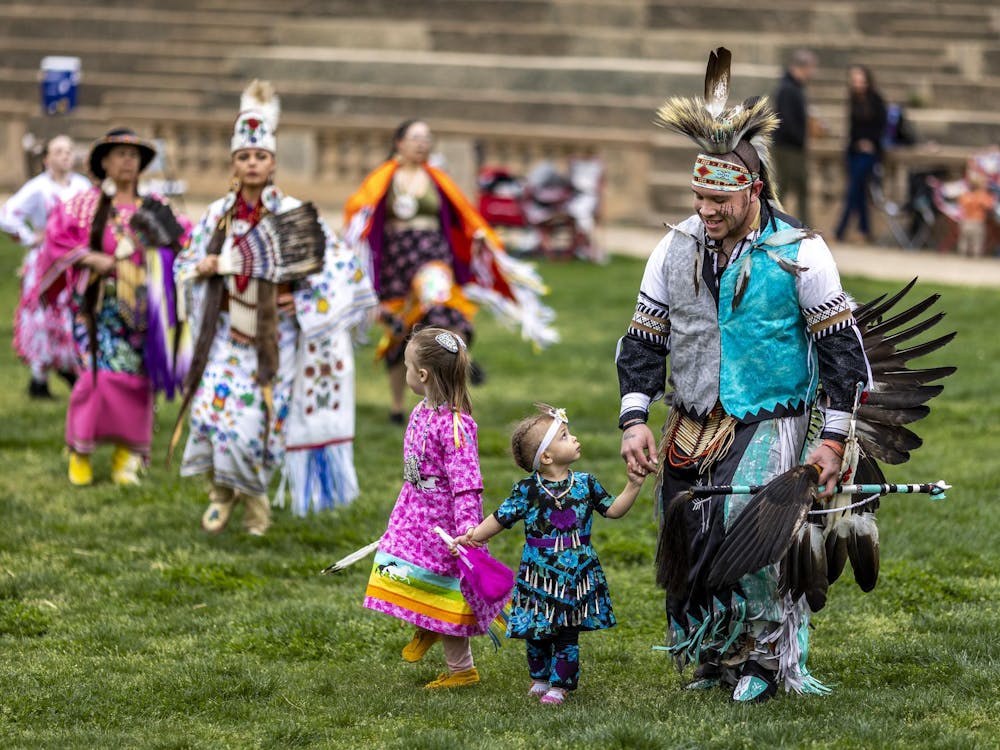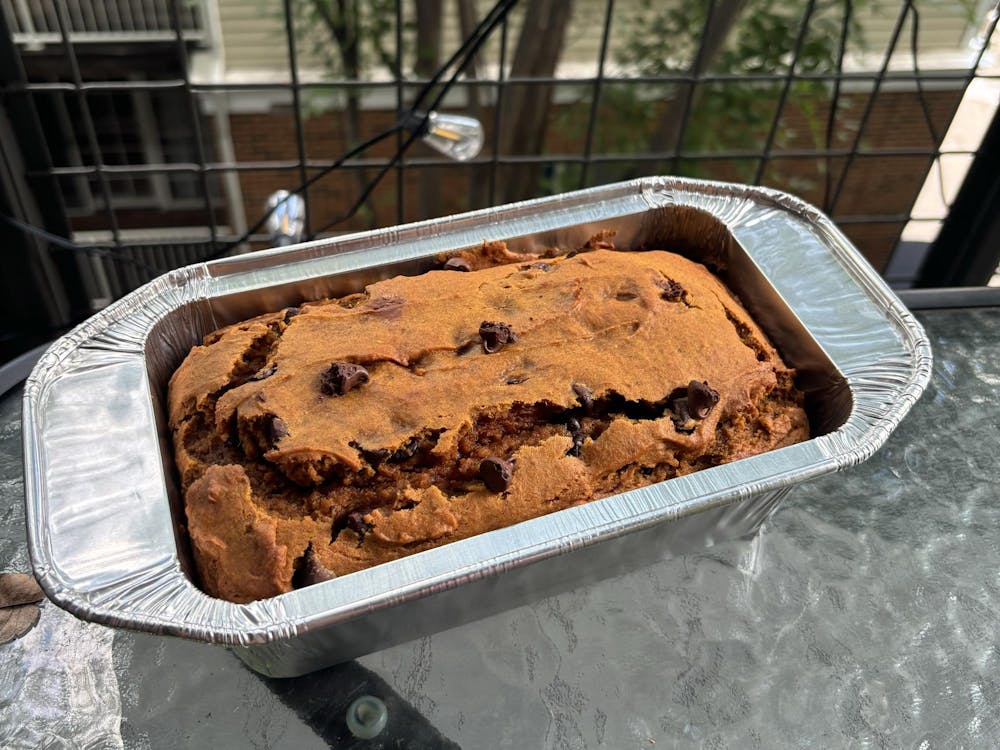If you had asked me six months ago if I’d ever consider taking time off from the University, my reaction would have been a stiff “No! Why would I do that? I’m doing just fine.”
Except I wasn’t “just fine.” I was unhappy. I couldn’t focus. Some days, the very thought of leaving my apartment to go to lecture was anxiety-inducing enough for me to stay in bed all day. But still, I clung desperately to this narrative that I was fine, and I needed everyone to believe it. Why?
It’s more than just the day-to-day strain of juggling commitments, keeping up with assignments and planning for the future — your typical college stressors. It’s the pressure that comes with constantly having to live up to expectations that are bigger than yourself.
See, there’s this kind of unspoken idea that when you come to the University, you enter into an elite community of scholars, self-starters and budding leaders — a league of unique individuals all bound together by decades-old traditions and shared values of integrity and the pursuit of excellence.
It’s this collective mindset that seems to define the University and why so many of the students — myself included — come to grow so fond of this place and call it home so quickly. But it’s also the perfect breeding ground for social comparison and perfectionism.
It certainly was for me. I came in as a first-year already at a disadvantage. I had just been diagnosed with post-concussion syndrome following a concussion I had gotten playing high school soccer. This meant most of my symptoms — headache, fatigue, anxiety, poor concentration and slow processing — were persisting. My doctor suggested that I take a gap year to recover, but I was adamant. I was a Wahoo, Class of 2020, and nothing would change that. I’d just have to work a little harder and maybe not socialize as much as my peers, but if I kept my head down and stayed focused I told myself I’d be just fine.
I held strong for about a semester. As much as I love academics, it can get pretty lonely as a first-year who nearly always chooses staying in on the weekends to study over going out with friends. So many of the people I’d spent time with first semester were starting to form close friend groups or were getting swept up in their new sororities and fraternities, and I felt like I had missed out somehow.
But the more time I spent “catching up” on socializing, the more I started to lose interest in my classes and fall behind in my work. Everyone around me seemed to be thriving on the “work hard, play hard” mentality, but I couldn’t strike a balance. Add a case of mono and three new concussions over the next two years — giving up contact sports didn’t stop me from hitting my head again — and things got really rough.
Yet with every new setback, I pushed on, forcing myself to put on a brave face and remain positive. I’ve always prided myself on my resilience. Only, resilience was becoming synonymous with unbending perseverance — never letting up and never admitting vulnerability. So long as I continued projecting this image of myself as thriving and happy, others would treat me as such, and eventually, that’s what I’d become. Basic principles of self-fulfilling prophecy, right?
I survived in this state of denial until I ran myself so deep into the ground that I literally couldn’t function. I was running on empty — my only option was to reach out for help.
The minute I told a friend the messy, 100 percent honest truth about how no, I was not OK, I realized just how much I’d been struggling and how badly something needed to change. With my friends’ and family’s support, I decided to take a medical withdrawal from the University this past April to prioritize, for the first time ever, my health over everything else.
Taking a break from the University was not an easy decision, but it was the right one. It meant shutting the door on the four-year college “survival” plan I’d followed religiously for the last three years, but it also meant I could stop perpetuating a facade of well-being and move on. After a long summer of rest and a lot of self-exploration, I’m back at school with a new mentality — to embrace the real.
So this is what I want to leave you with — It’s OK not to be OK. Really. It’s OK. I’m not just talking about those days when you’re feeling a little off or forgot to study for that one quiz and are now convinced you completely tanked it. I’m talking about when you’re really struggling.
When you’re in the middle of a tough breakup, and it hits that you’ve distanced yourself from all of your other friends, so now you’ve got no one. When you see all your friends getting impressive internships while you can’t even get a single interview. When it’s two months into your first semester, and you’re still crying yourself to sleep every night from homesickness. When you suddenly find yourself admitting that you’re not even interested in the major you’ve been pursuing for the last two years, and you have no clue what’s next.
Although you’ve probably heard some form of, “You’re not alone … everyone is struggling or going through something!” these words of reassurance just don’t seem to match up to the smiling, successful people all around you.
Maybe you don’t want to ask for help because it feels like you’re giving up or that you’re not good enough. Or maybe you’re still hanging onto a narrative you wrote for yourself that no longer coexists with reality. But here’s the thing — although it’s hard and at times very lonely, there’s something extremely cathartic and empowering about admitting wholeheartedly that you are not OK. It’s always OK to re-write your narrative.
Sarah Delcoco is a Life Columnist for The Cavalier Daily. She can be reached at life@cavalierdaily.com.





